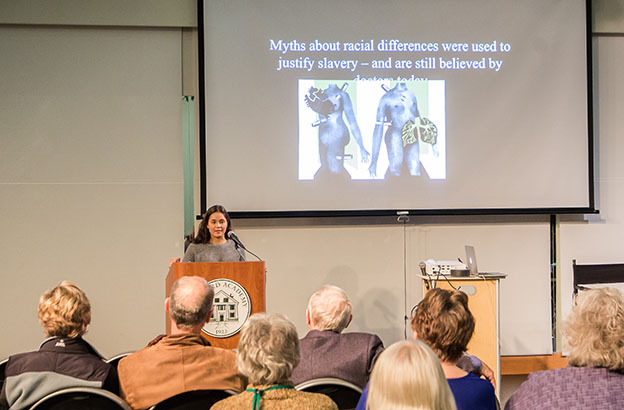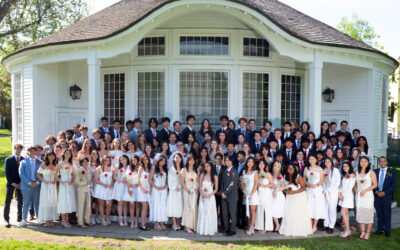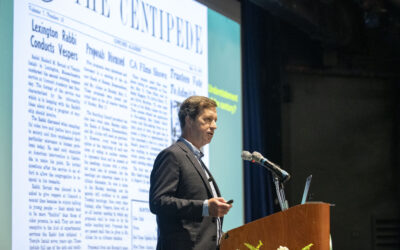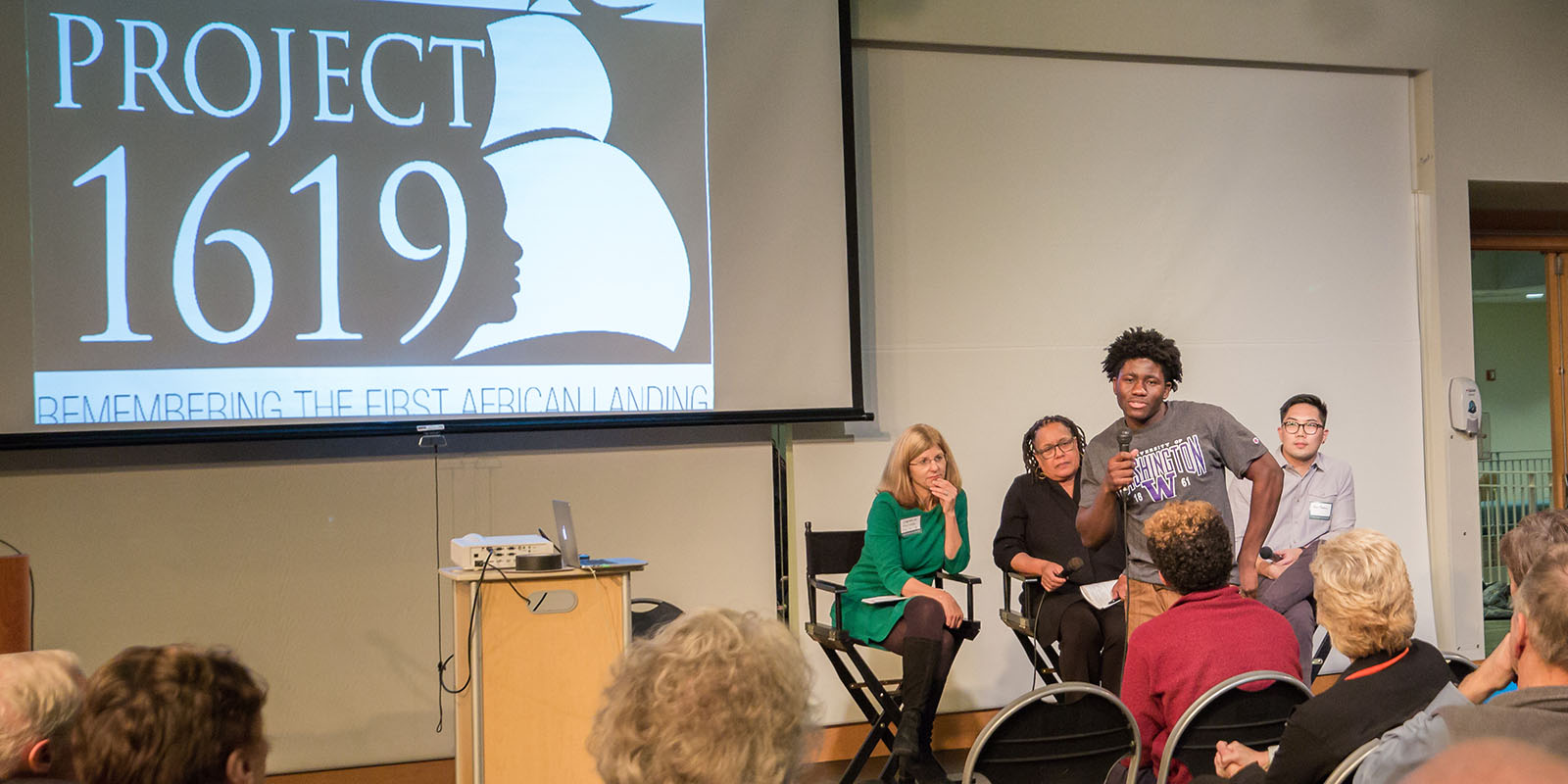
Isaac Bediaco ’20 speaking during the 1619 Project evening event, with panelists Stephanie Manzella P’14 ’17 ’18, Evelynn Hammonds P’21, and Peter Boskey ’08.
November 21 provided two opportunities for the CA community to come together to consider the significance of the arrival of slavery 400 years ago in what came to be the United States, and how that history continues to shape many facets of American life. Both a student-led assembly and an evening panel discussion engaged attendees in grappling with these most difficult legacies and offered a window into some of the impactful ways history is taught at Concord Academy.
History faculty member Stephanie Manzella P’14 ’17 ’18 was inspired by the New York Times’ 1619 Project, a major initiative conceived by Nicole Hannah-Jones to reframe the country’s history and challenge its readers, as stated, to understand “1619 as our true founding, and [place] the consequences of slavery and the contributions of black Americans at the very center of the story we tell ourselves about who we are.” This fall, Manzella offered a new seminar-style evening course at CA, The 1619 Project: Confronting Slavery, using articles and poems from the series as the text for the class, with the goal of joining a national conversation about how the United States can, and should, acknowledge the inhumanity of its past in order to chart a more just future.
At the end of the semester, the students in this class hosted an assembly in several groups, to present about three major legacies of slavery: the undemocratic features of the U.S. government, African Americans’ exclusion from the field of medicine and health care, and racialized fear and violence in the criminal justice system.
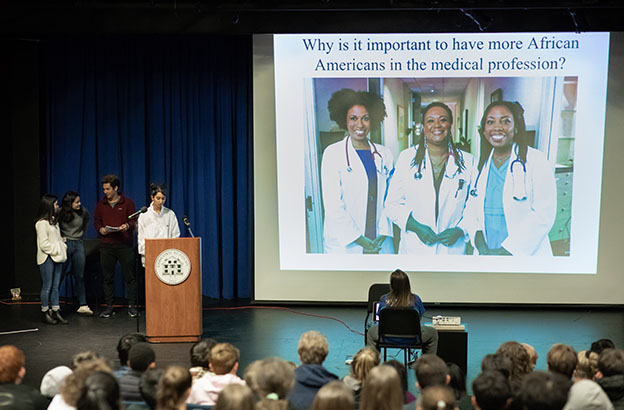
Students from Manzella’s 1619 Project class leading a presentation about racial inequities in the health care system.
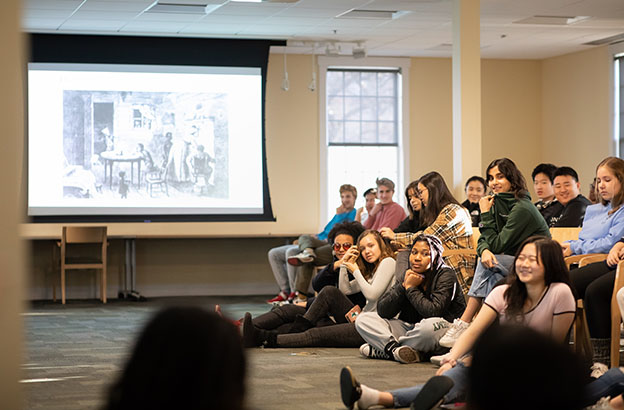
CA students taking part in a discussion of the influence of slavery in shaping the U.S. criminal justice system.
In the evening, a panel discussion welcomed around 50 parents, alumnae/i, and friends of the school in the dance studio, where Evelynn Hammonds P’21, chair of Harvard University’s department of the History of Science and professor of African and African American studies, spoke about the consultation she provided for a piece on race and medicine by Jeneen Interlandi, published as part of the Times’ 1619 Project. She discussed her work exploring the intersection of race, medicine, and science, which is helping students at Harvard understand this history and, as she said at the event, its “direct, serious, and continuing consequences for today.”
Manzella spoke about slavery as “in our DNA” in the American capitalist system. Three of her students — Isaac Bediako ’20, Ceci Crawford ’20, and Mira LaRocca ’20 — shared their personal experiences with the 1619 Project material. And Peter Boskey ’08, interim director of community and equity, described the assembly earlier in the day as the first opportunity for the whole school to engage in what the 1619 Project asks us to consider — work that will continue at CA throughout the year in Inclusion Council and as part of the school’s daylong Martin Luther King Jr. Day programming.
A lively discussion followed, which focused on how CA approaches the teaching of history. For the past 10 years, there have been no required history classes at the school — ”because one history,” Manzella said, “is not more important than any other.” The freedom that provides is instrumental to the development of courses such as hers. In response to a question about what action Manzella’s class was taking to confront these legacies, her student Mira said, “This education is action. It’s inspiring us to be thinkers.”
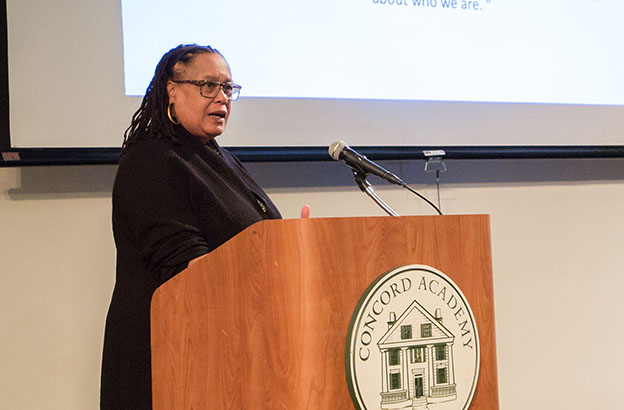
Evelynn Hammonds P’21, whose work at Harvard University explores the intersection of race, medicine, and science.
